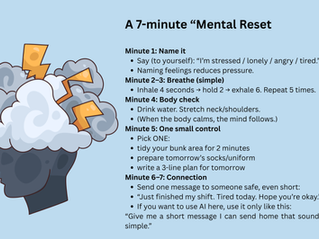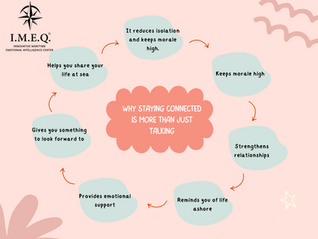The Social Responsible Maritime Leader in the Post Covid-19 Era
- Jun 9, 2020
- 3 min read
Updated: Sep 12, 2023
The world will not be the same in the post Covid-19 period as we return to our daily life as we knew it before the pandemic. The direct experience of the pandemic, the lockdown, the social isolation and the disruption of our daily lives, has forevermore altered and transformed our perspectives on fundamental areas of our lives; safety, health, work, financial security, our future. The pandemic has already changed the way we work; remote working, digital participation, while has made us more skeptical about systems’ readiness to effectively deal with global crises. Although, it may be too early to predict the long lasting changes in workplace, social policies and lifestyle we certainly know that we are swimming in unchartered waters as we are leaving lockdowns and returning to normalcy.
Around the globe, companies are adopting strategies that reflect corporate- social citizenship as an increasing number of people identify with companies that are committed to have a positive social and environmental impact. During the pandemic, we all witnessed a number of companies changing their attitudes on safety and wellness either by modifying production lines to manufacture ventilators, masks or medical equipment needed or just offer support to frontline personnel . How will the pandemic impact the existing trends?
As businesses resume leaders need to quickly address the challenges and priorities of workplace in the post pandemic period in terms of two key elements : preparedness and resilience. How will these crucial issues be addressed during the post pandemic period will constitute the building blocks of reinventing leadership and management systems. The shipping industry heavily structured by standardized systems of operations and leadership, needs to reflect on the adaptability and resiliency of their management systems in dealing with crisis as they develop . We are all experiencing an unprecedented crisis, and at critical times like these solidarity , secure relationships and integrity are indispensable values to guide our actions.
Recently Mr. Kaloulis, Managing Director of our affiliated company K.A.IMS, organized the repatriation of a seven member technician crew stranded at sea during the pandemic crisis while borders and flights were closing down . It was a challenging 72 hour operation before the crew could return safely home; as we debriefed the process in the days that followed, we all learned a valuable lesson: the key element to the triumph of the operation was communication: sincere, supportive and caring communication because “ At a time of crisis people need to know the facts to feel safe ”
Based on our experience we devised a communication model which we would like to share with you today:
F O C U S
F- frank communication based on facts. At times of crisis people need to rely on facts in order to feel safe . Integrity, honesty and accountability are key elements to frank communication .
O- open communication entails that people have access to information, resources, updates, actions taken etc. Establishing a two way communication flow based on transparency . People in crisis need to voice their concerns, worries and fears and know the “truth” not “fake news”.
C- consistent communication states that : We are here and in an ongoing relationship; Consistent communication is based on presence, trustworthiness and dependability. Our actions are consistent with our words. A person in crisis needs a leader who is trustworthy reliable and present.
U- understanding requires that we are empathic by actively listening to issues concerns or worries as they are voiced ; being empathic communicates genuine care and concern for the other person
S- supportive requires that we listen, validate and empower people by actively directing our efforts and actions towards resolution ; by fostering an alliance towards working together to deal with the situation.
As we reflected further to identify what each step requires we realize that communication is a complex process and in an industry that heavily relies on a standardization model of leadership , regulating a communication model that can be both adaptable and flexible can be the cornerstone of system’s preparedness in dealing with critical situations .
In 2019, the Business Roundtable declared that businesses need to invest on purpose that serves society at large and not just generates profits. Today as our values, views and attitudes are being challenged by the pandemic period, societal solidarity and social responsibility become more significant than ever. Empathy , compassion and sincerity are words that are vibrating and transcending our meaning of humanity . These are the very powerful words that will be reinventing businesses and bridging people across cultural , racial, social, economic , geographical disparities.
Successful organizations will depend on leaders who possess the skills of empathy, compassion, honesty and integrity to build strong relationships, motivate and lead teams and adapt to changes all of which embody key elements of a resilient human system in the workplace.
F O C U S





































































































Comments